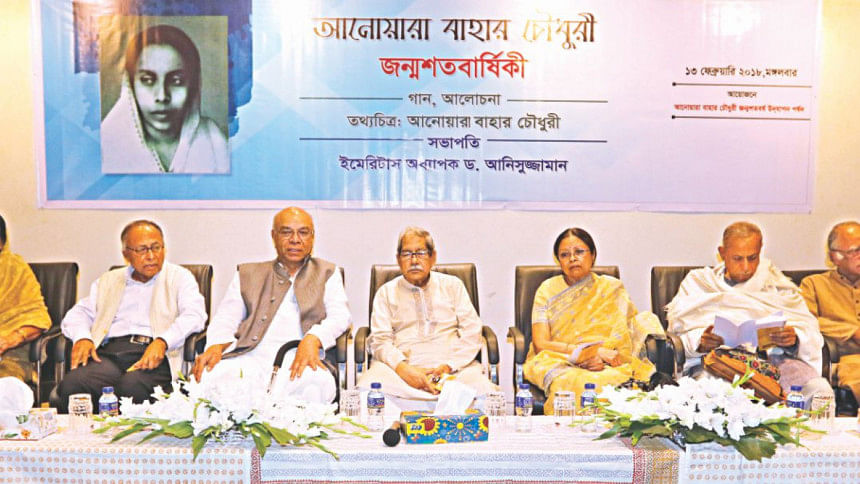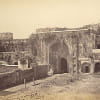Anwara Bahar Chowdhury's birth centenary observed

Noted educationist, writer and cultural activist Anwara Bahar Chowdury's birth centenary was observed on February 13 at the Sufia Kamal Auditorium of Bangladesh National Museum.
The evening began with the screening of a documentary made by Iqbal Bahar Chowdhury on the life and achievements of his mother Anwara Bahar Chowdhury. Nasreen Shams, eldest daughter of Anwara Barhar chowdhury, then sang “Tumi Kon Kanoner Phool”, followed by Sadi Mohammad's rendition of “Tumi Ki Keboli Chhobi”. Shama Rahman sang “Modhuro Tomar Shesh Ja Nai Pai”.
Prominent personalities remembered Anwara Bahar Chowdhury and her achievements and sacrifices at the memorial programme. “Anwar Bahar Chowdhury helped create a culturally rich nation by patronizing women's education and motivating cultural activities for them,” Professor Rafiqul Islam said.
Pranotosh Bandopadhyay, a social worker from West Bengal, India said he was happy as the celebration of Bashanta had coincided with Anwara Bahar Chowdhury's birthday celebration.
Professor Dr. Parvin Hasan said: Anwara Bahar Chowdhury was a simple person, yet did remarkable work for the society. She maintained a family bond despite her busy life as a teacher and social worker.
Mafidul Haque proposed that an alumni association be formed by those who got Anwara Bahar Chowdhury as a teacher; “Only then we could see how much she did for the society,” he said.
“Anwara Bahar Chowdhury was one of those persons who did for the society more than they did for themselves,” said Professor Dr. Anisuzzaman. The struggle she had to undergo taking care of her husband and eminent political personality Habibullah Bahar Chowdhury - who was ailing for thirteen years - and looking after four children was remarkable, he added.
Iqbal Bahar Chowdhury concluded the programme with recitation of a poem by Anwara Bahar Chowdhury and thanking all who attended the event.
Born on 13th February in 1918 to a noble Muslim family, Anwara Bahar Chowdhury became a torch-bearer of female education. After obtaining a BA degree with first division and then passing BT, a graduation in teaching she started her career as a teacher. She worked as the headmistress of four prominent schools - Sakhawat Memorial Girls' School in Kolkata, Kamrunnesa Girls' High School in Dhaka, Bangla Bazar Government Girls' High School in Dhaka and Vidyamoyee Girls' High School in Mymensingh. She also worked as a Special Officer for Women's Education in the Education Directorate. Chowdhury became Secretary of Anjuman-e-Khawatin-e-Islam, or the All Bengal Muslim Women's Association established by Begum Rokeya. She was one of the founders of Bulbul Academy of Fine Arts (BAFA), and wrote books for children. Her collection of poems, “Amar Chetonar Rang” was published just before she passed away on October 27, 1987.

 For all latest news, follow The Daily Star's Google News channel.
For all latest news, follow The Daily Star's Google News channel. 








Comments